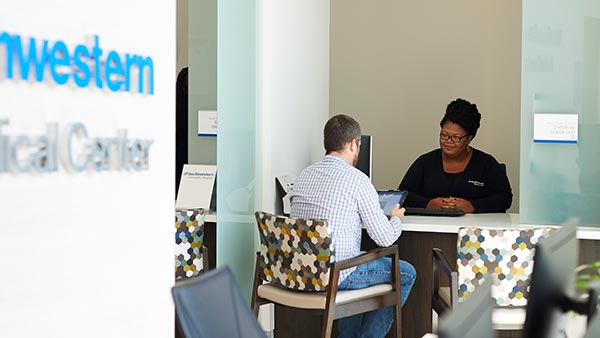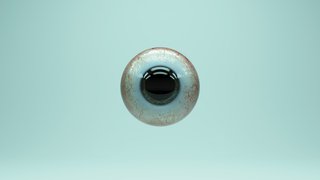The Evolving Role of CAR T-Cell Therapy in Multiple Myeloma
August 17, 2020
CAR T-Cell Clinical Trials at UT Southwestern
UT Southwestern is a premier destination for multiple myeloma treatment. We evaluate and treat a significant number of patients with MM, which gives us the ability to be involved in many innovative clinical trials. A pivotal CAR T-cell trial concluded in 2019 and several more are ongoing, with new trials of fourth- or fifth-generation CAR T-cell therapy in different lines of treatment planned for 2020.
This novel immunotherapeutic approach holds the potential to change the treatment landscape of many cancers.
Chimeric antigen receptor (CAR) T-cell therapy has been approved by the U.S. Food and Drug Administration and European Medicines Agency for the treatment of children and young adults with B-cell precursor acute lymphoblastic leukemia (ALL) and for adults with diffuse large B-cell lymphoma. Several trials are underway to evaluate CAR T-cell therapy in other hematologic malignancies, including multiple myeloma (MM). [1]
MM is a common B-cell neoplasm that mainly affects adults ages 65 and older. [2] Over the past two decades, significant advances in therapy have greatly improved survival rates for patients who received their diagnosis between 60 and 80 years of age. [2] Although CAR T-cell therapy for MM is still under investigation, the treatment could represent a major breakthrough for people with this progressive disease. [1]
Early Results and Clinical Considerations
Preliminary results from early phase clinical trials of CAR T-cell therapy in the relapsed/refractory setting have been very promising. Despite progressing on other therapies, including anti-CD38 antibodies and proteasome inhibitors, minimal-residual disease negativity and high response rates have been reported. In some cases, no plateau has been reached in progression-free survival, suggesting the possibility of a cure in this heavily pretreated patient population. [1]
We have observed quicker and deeper response rates in up to 80% to 90% of our patients, meaning eight or nine out of 10 are seeing an excellent response to CAR T-cell therapy.
Although the initial efficacy results are robust, several key treatment-related considerations also exist. The administration of CAR T-cells poses unique safety considerations, and thus is available only in a limited number of treatment centers with specialized expertise in the management of potentially life-threatening complications, such as cytokine release syndrome or neurotoxicity. [1]
We have seen very good safety signals in our CAR T-cell patients. There have been no unmanageable toxicities or unexpected treatment-related complications. We have a robust intensive care unit team, including neurologists, nephrologists, and cardiologists with experience in the management of CAR T-cell-related complications, should they arise.
“We might see a CAR T-cell therapy for myeloma approved in 2020. Refer patients early in their treatment journey; we are now testing CAR T-cell therapy in much earlier lines of treatment, including patients with newly diagnosed MM.”
Ankit Kansagra, M.D.
Looking Ahead
Our team at UT Southwestern is pioneering CAR T-cell therapy for MM in our region. [3] As co-leader of the Global CAR-T Initiative, we are collaborating with hematologists and transplant physicians around the globe to develop expert guidelines and recommendations for CAR T-cell therapy in clinical practice. [3,5] As one of the few institutions designated by the National Cancer Institute as a Comprehensive Cancer Center, we will continue to provide leadership and direction on using CAR T-cell therapy for a variety of hematologic cancers. [3]
Meanwhile, Theodore Laetsch, M.D., an Associate Professor in the Department of Pediatrics at UT Southwestern Medical Center, is leading the Experimental and Cellular Therapeutics Program, which is investigating several novel targeted and cellular therapies for children with late-stage cancer. [6] Dr. Laetsch and his team are actively treating pediatric ALL patients with CAR T-cell therapy at the Pauline Allen Gill Center for Cancer and Blood Disorders at Children’s Health. [3]
We might see a CAR T-cell therapy for myeloma approved in 2020, and for even more hematologic malignancies in the coming years. I think it’s going to be a big year for myeloma. My recommendation is to refer patients early in their treatment journey; we are now testing CAR T-cell therapy in much earlier lines of treatment, including patients with newly diagnosed MM.
About the Author
Ankit Kansagra, M.D., Assistant Professor in the Department of Internal Medicine at UT Southwestern Medical Center, is an international expert on the treatment of patients with plasma cell disorders. Dr. Kansagra and his team are leading pivotal clinical trials examining the role of CAR T-cell therapy in various blood cancers and solid tumors. [3,4]
Footnotes
- Moreau P, Sonneveld P, Boccadoro M, et al. Chimeric antigen receptor T-cell therapy for multiple myeloma: A consensus statement from The European Myeloma Network. Haematologica. 2019;104(12):2358-2360.
- Kazandjian D. Multiple myeloma epidemiology and survival: A unique malignancy. Semin Oncol. 2016;43(6):676-681.
- utsouthwestern.edu. CAR-T clinical trial enrolling multiple myeloma patients. Accessed February 15, 2020.
- utsouthwestern.edu. Simmons Cancer Center researchers part of historic CAR-T breakthrough. Accessed February 15, 2020.
- Kansagra AJ, Frey NV, Bar M, et al. Clinical utilization of Chimeric Antigen Receptor T-cells (CAR-T) in B-cell acute lymphoblastic leukemia (ALL): An expert opinion from the European Society for Blood and Marrow Transplantation (EBMT) and the American Society for Blood and Marrow Transplant. Bone Marrow Transplant. 2019;54(11):1868-1880.
- utsouthwestern.edu. Theodore Laetsch, M.D. Accessed February 15, 2020.







